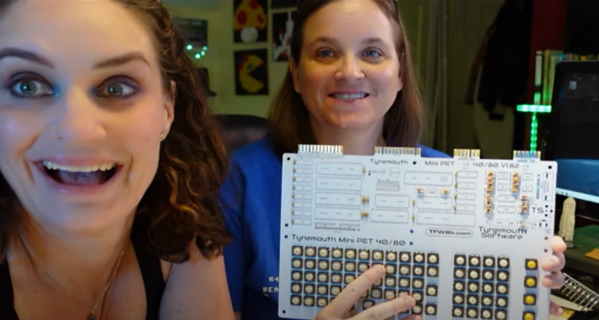[Taylor and Amy] love taking on retro computer projects. This week they’re building a MiniPET from Tynemouth and The Future is 8 Bit. It’s a pretty awesome kit which sadly isn’t available anymore. Taylor bought one of the last ones as part of a charity sale at the 2023 Vintage Computer Festival Southwest.
If you haven’t seen their YouTube channel yet, check it out! The two have been best friends since 1984. Their channel has just the right mix of education and comedy, with pacing fast enough to keep things interesting. It’s really refreshing to see two people enjoying a project together.
The MiniPET is of course a reproduction of the hardware in the Commodore PET, the machine which predated the VIC-20 and of course the Commodore 64. The kit starts with installing a few discrete parts — resistors, capacitors, and diodes. Then come the IC sockets. [Taylor and Amy] ran into a bit of trouble when it came time to install the chips. While installing the 40-pin 65C21 Peripheral Interface Adapter (PIA), one pin bent under the socket. [Taylor] popped the chip back out, and replaced it — which resulted in 3 bent pins!
Anyone who’s installed new DIP parts has been through this. The pins are always bent out a bit from the factory. The old “Bend it in using a table” method usually works — but if you want perfect pins, try a pin straightener. These versatile tools can even be 3D printed.
Once the pin problems are solved, it’s time to power up the kit and see if it will work. That’s when we get to see that magic moment when a project first comes to life. Check out the video – you’ll see what we mean.
Continue reading “Building A MiniPET Is Better With Friends”













